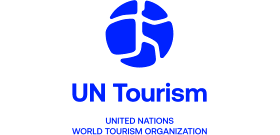 Luanda Declaration: A New Dawn for African Tourism?
Luanda Declaration: A New Dawn for African Tourism?
The 2nd Ministerial Conference on Tourism and Air Transport in Africa, held in Luanda, Angola, has concluded with a landmark declaration aimed at revolutionizing the continent’s travel sector. This high-level forum, co-hosted by the UN World Tourism Organization (UNWTO) and the International Civil Aviation Organization (ICAO), brought together key stakeholders to address the critical challenges and opportunities facing African tourism.
The Luanda Declaration, a comprehensive blueprint for action, focuses on enhancing connectivity, promoting sustainability, and fostering greater integration within the African travel market. For travel agents across the continent, this declaration signals a potential turning point, offering new avenues for growth and collaboration.
A central theme of the conference was the need to reduce barriers to intra-African travel. Delegates highlighted the cumbersome and often costly process of navigating visa requirements and fragmented regulations, emphasizing the urgent need for streamlined policies. The Luanda Declaration calls for harmonized aviation and tourism policies across Africa, promoting visa waivers and more flexible entry regimes. This commitment, if effectively implemented, could significantly simplify travel within the continent, opening up new markets and opportunities for travel agents to curate seamless cross-border itineraries.
Investment in infrastructure emerged as another key priority. Angolan President João Lourenço underscored his nation’s commitment to tourism development, citing major airport upgrades as crucial for positioning Angola as a regional gateway. The recent inauguration of the Dr. Antonio Agostinho Neto International Airport, a state-of-the-art facility with a capacity of 15 million passengers annually, serves as a prime example of Angola’s ambition. This, coupled with ongoing modernization of Angola’s air navigation system, creates exciting prospects for increased connectivity and tourism growth.
UNWTO Secretary-General Zurab Pololikashvili commended Angola’s progress, describing the country as a potential “new African Dubai.” He stressed the importance of decisive policy action to remove the bottlenecks hindering African tourism, particularly the lack of seamless air connectivity. The signing of two Memoranda of Understanding between UNWTO and Angola, focusing on tourism training and data collection, further reinforces the commitment to capacity building and sustainable development.
ICAO Council President Salvatore Sciacchitano emphasized the vital link between air transport and tourism, noting that connectivity is essential for the sector to flourish. While acknowledging the continent’s impressive recovery in international arrivals, reaching 74 million in 2024, he highlighted the persistent challenges of visa restrictions, inadequate infrastructure, and fragmented policies. The Luanda Declaration directly addresses these issues, providing a roadmap for practical reforms and strategic investments.
The call for public-private partnerships resonated strongly throughout the conference. Recognizing the need for significant investment to upgrade infrastructure and enhance connectivity, delegates emphasized the importance of collaborative efforts between governments and the private sector. This presents a valuable opportunity for travel agents to engage with policymakers and investors, contributing their expertise and insights to shape the future of African tourism.
The Luanda Ministerial Declaration outlines a series of concrete commitments, including the harmonization of aviation and tourism policies, promotion of visa waivers, encouragement of public-private investments, and positioning Africa as a unified and competitive global destination. The announcement of a new 3,000-seat Convention Centre in Luanda further strengthens Angola’s ambition to become a major hub for event tourism.
The conference served as a powerful reminder of the interconnectedness of tourism and aviation. By aligning policies, investing strategically, and fostering stronger partnerships, African nations can unlock the immense potential of their travel sector. For travel agents, the Luanda Declaration offers a clear vision for the future, providing a framework for innovation, collaboration, and sustainable growth.
